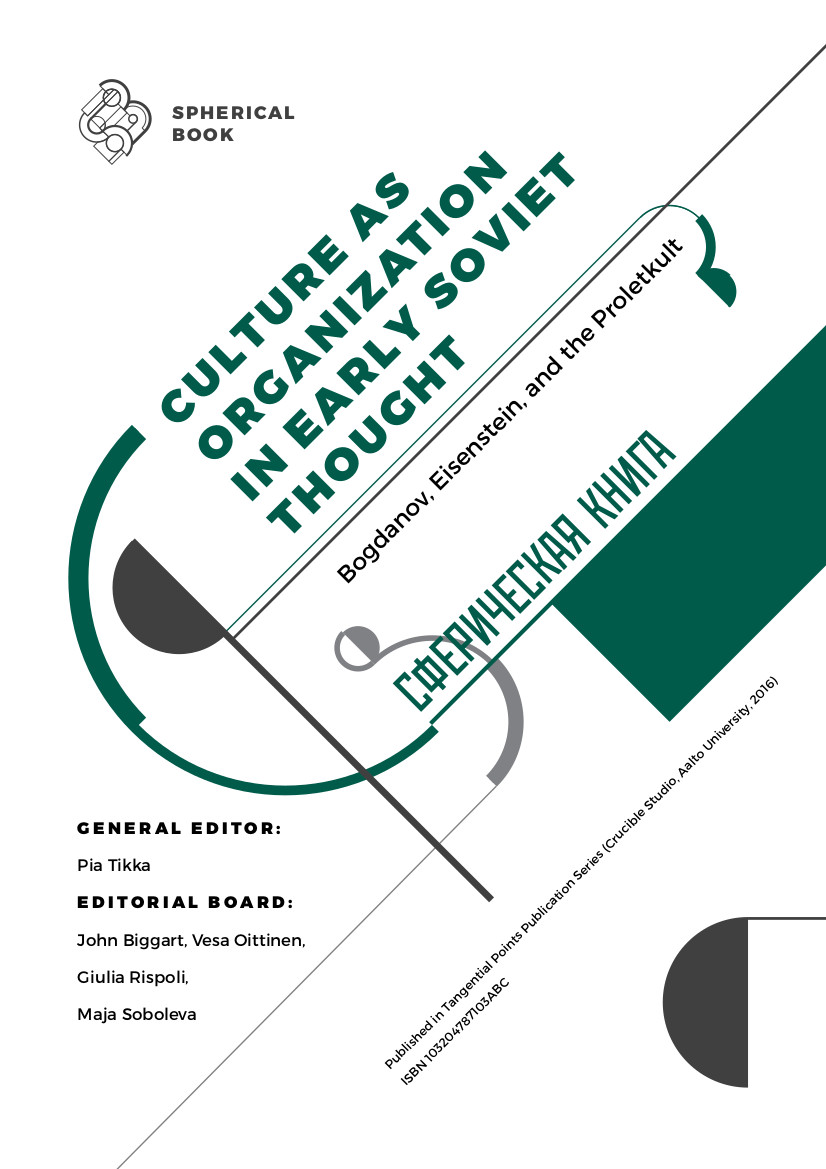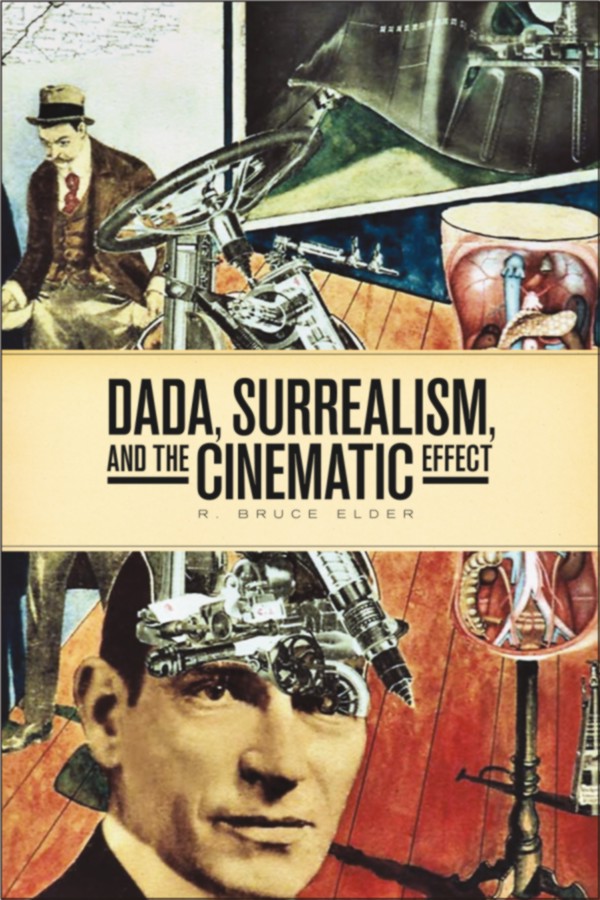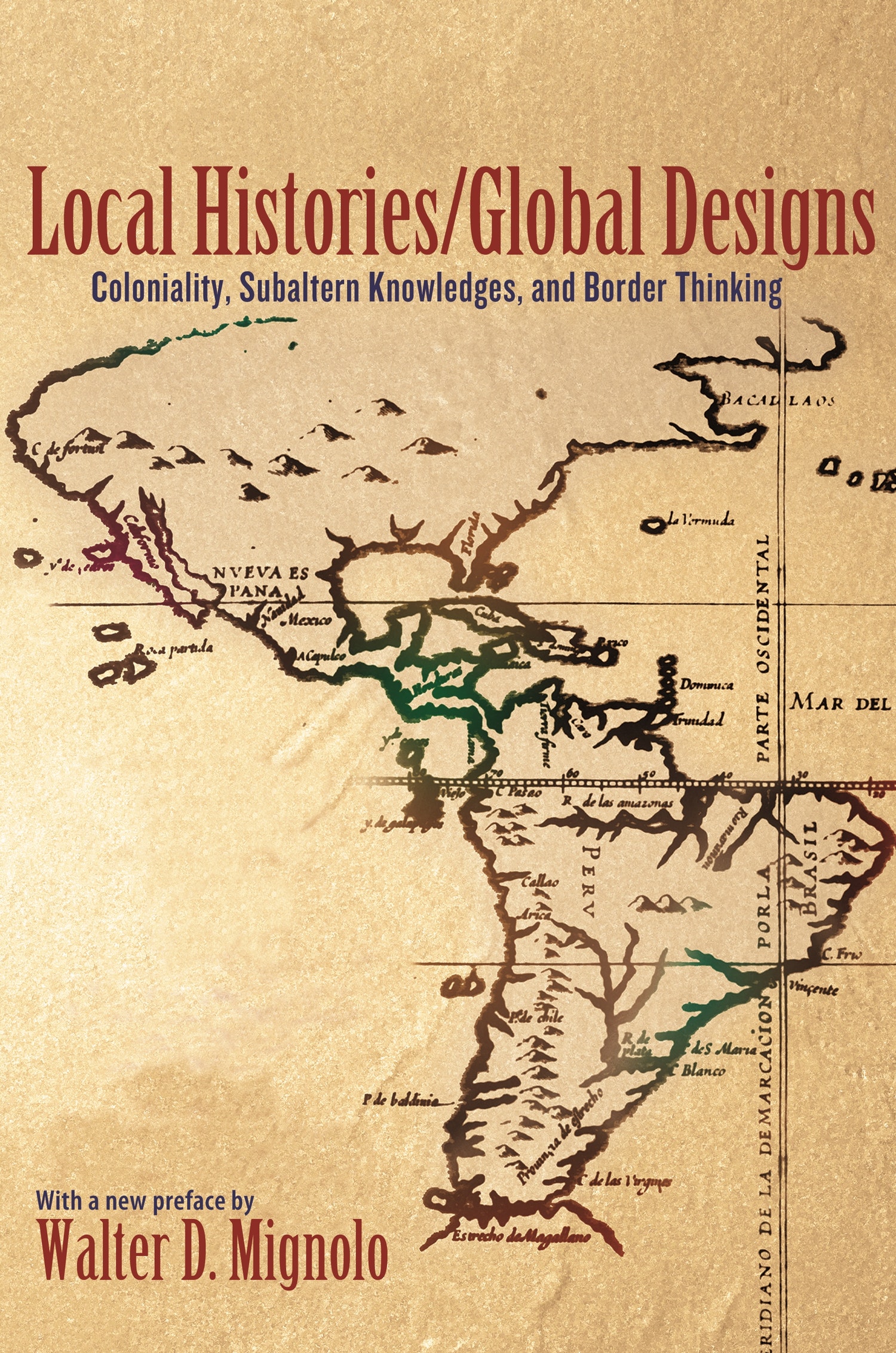Culture as Organization in Early Soviet Thought: Bogdanov, Eisenstein, and the Proletkult (2016)
Filed under book, spherical book | Tags: · cinema, film, film theory, montage, philosophy, proletkult, russia, systems theory, tektology, theory

“This anthology brings together a group of film researchers, historians, political scientists and systems scientists to discuss historical and contemporary tangential points between the sciences and the arts in Russia during the first decades of the twentieth century. All chapters provide new insights into linkages between the arts, philosophy and other disciplines during this period. Tangential points between early Russian systems thinking and approaches to montage that were being developed within the film community are examined in detail. The contributing authors focus on two thinkers: the filmmaker, Sergei M. Eisenstein and the systems theorist, Aleksandr A. Bogdanov.”
The book is published in an interactive format inspired by Eisenstein’s idea of the “Spherical Book”, organising chapters in a thematic modular way, allowing for multiple reading perspectives.
Edited by Pia Tikka, with John Biggart, Vesa Oittinen, Giulia Rispoli, and Maja Soboleva
Publisher Aalto University School of Arts Design and Architecture, Helsinki, 2016
Tangential Points series
ISBN 9789526000763
R. Bruce Elder: Dada, Surrealism, and the Cinematic Effect (2013)
Filed under book | Tags: · alchemy, art history, avant-garde, chance, cinema, collage, consciousness, dada, dreams, film, film history, language, mathematics, occultism, sexuality, spiritualism, surrealism, theory

“This book deals with the early intellectual reception of the cinema and the manner in which art theorists, philosophers, cultural theorists, and especially artists of the first decades of the twentieth century responded to its advent. While the idea persists that early writers on film were troubled by the cinema’s lowly form, this work proposes that there was another, largely unrecognized, strain in the reception of it. Far from anxious about film’s provenance in popular entertainment, some writers and artists proclaimed that the cinema was the most important art for the moderns, as it exemplified the vibrancy of contemporary life.
This view of the cinema was especially common among those whose commitments were to advanced artistic practices. Their notions about how to recast the art media (or the forms forged from those media’s materials) and the urgency of doing so formed the principal part of the conceptual core of the artistic programs advanced by the vanguard art movements of the first half of the twentieth century. This book, a companion to the author’s previous, Harmony & Dissent, examines the Dada and Surrealist movements as responses to the advent of the cinema.”
Publisher Wilfrid Laurier University Press, Waterloo, 2013
Film and Media Studies series
ISBN 9781554586257, 1554586259
x+765 pages
Reviews: John W. Locke (Canadian J of Film Studies 2014), Robin Walz (Canadian J of History 2014), Bart Testa (U Toronto Quarterly 2015).
PDF (8 MB, updated on 2019-12-14)
EPUB (added on 2019-12-14)
Walter D. Mignolo: Local Histories/Global Designs: Coloniality, Subaltern Knowledges, and Border Thinking (1999)
Filed under book | Tags: · anthropology, borders, colonialism, decolonization, epistemology, gender, globalisation, hermeneutics, history, knowledge, language, latin america, modernity, occidentalism, pluriversality, postcolonialism, subaltern studies, theory, zapatistas

“This book is an extended argument on the “coloniality” of power by one of the most innovative scholars of Latin American studies. In a shrinking world where sharp dichotomies, such as East/West and developing/developed, blur and shift, Walter Mignolo points to the inadequacy of current practice in the social sciences and area studies. He introduces the crucial notion of “colonial difference” into study of the modern colonial world. He also traces the emergence of new forms of knowledge, which he calls “border thinking.”
Further, he expands the horizons of those debates already under way in postcolonial studies of Asia and Africa by employing the terms and concerns of New World scholarship. His concept of “border gnosis,” or what is known from the perspective of an empire’s borderlands, counters the tendency of occidentalist perspectives to dominate, and thus limit, understanding.
The book is divided into three parts: the first chapter deals with epistemology and postcoloniality; the next three chapters deal with the geopolitics of knowledge; the last three deal with the languages and cultures of scholarship. Here the author reintroduces the analysis of civilization from the perspective of globalization and argues that, rather than one “civilizing” process dominated by the West, the continually emerging subaltern voices break down the dichotomies characteristic of any cultural imperialism. By underscoring the fractures between globalization and mundialización, Mignolo shows the locations of emerging border epistemologies, and of post-occidental reason.”
Publisher Princeton University Press, 1999
Princeton Studies in Culture/Power/History series
ISBN 0691001405, 9780691001401
xix+371 pages
Interview with author (L. Elena Delgado and Rolando J. Romero, Discourse, 2000)
Author on pluriversality (2013)
Review: Serge Gruzinski (Annales, 2002, FR).
Commentary: Linda Martín Alcoff (CR, 2007).
PDF (17 MB)
Comment (0)
